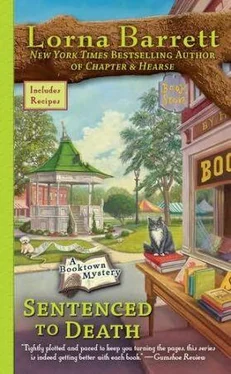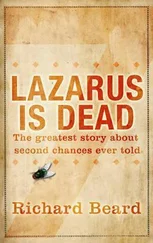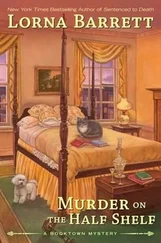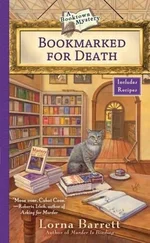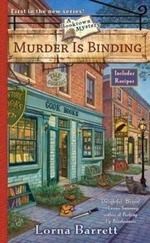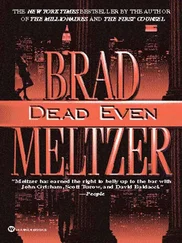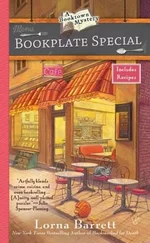Lorna Barrett - Sentenced to Death
Здесь есть возможность читать онлайн «Lorna Barrett - Sentenced to Death» весь текст электронной книги совершенно бесплатно (целиком полную версию без сокращений). В некоторых случаях можно слушать аудио, скачать через торрент в формате fb2 и присутствует краткое содержание. Год выпуска: 2011, ISBN: 2011, Издательство: Berkley, Жанр: Детектив, на английском языке. Описание произведения, (предисловие) а так же отзывы посетителей доступны на портале библиотеки ЛибКат.
- Название:Sentenced to Death
- Автор:
- Издательство:Berkley
- Жанр:
- Год:2011
- ISBN:978-1-101-52899-0
- Рейтинг книги:4 / 5. Голосов: 1
-
Избранное:Добавить в избранное
- Отзывы:
-
Ваша оценка:
- 80
- 1
- 2
- 3
- 4
- 5
Sentenced to Death: краткое содержание, описание и аннотация
Предлагаем к чтению аннотацию, описание, краткое содержание или предисловие (зависит от того, что написал сам автор книги «Sentenced to Death»). Если вы не нашли необходимую информацию о книге — напишите в комментариях, мы постараемся отыскать её.
, Tricia Miles can figure out whodunit in the latest bestseller long before she gets to the last page. But when her friend is killed in a freak accident, Tricia must use her sleuthing skills to solve a murder mystery that promises to be much more sinister than the books on her shelves.
Sentenced to Death — читать онлайн бесплатно полную книгу (весь текст) целиком
Ниже представлен текст книги, разбитый по страницам. Система сохранения места последней прочитанной страницы, позволяет с удобством читать онлайн бесплатно книгу «Sentenced to Death», без необходимости каждый раз заново искать на чём Вы остановились. Поставьте закладку, и сможете в любой момент перейти на страницу, на которой закончили чтение.
Интервал:
Закладка:
“I’m for that,” Muriel said, and turned to face Tricia again, grabbing her hand. “Thank you, Tricia. Not only have you made our day, but you’ve made our week, month, and year, too!”
The sisters turned in unison. “Well, that’s a load off of my mind,” Muriel muttered
“Mine, too,” Midge agreed, as they walked away, heading straight for Cheryl Griffin, who Tricia suspected was about to get an earful.
“Nice move,” Angelica said. “I didn’t know you were so well versed in intergalactic business policies.”
“I went through a phase reading science fiction, too, you know.”
“ Star Wars era?”
“And a little before,” Tricia admitted. “Of course, if all the aliens want is a food supply, we’re all skunked.” Once again she let her gaze travel the room, noticing there was no coffin. Instead, a small, six-sided cherry cask apparently held Deborah’s earthly remains on a small dais at the front of the room near the easel. The way David had been behaving, she was surprised he had sprung for even that indulgence instead of the standard plastic container that came with a bottom-end cremation. Then again, who said the cherry cask wasn’t just a prop for the service. Was he going to bury it or scatter Deborah’s ashes at a later date? No one had mentioned David’s plans for his wife’s remains.
“That cheap sonofabitch,” someone behind Tricia hissed. She turned to find Elizabeth Crane standing behind her.
“You mean David?” she asked.
Elizabeth nodded. Her face was pale and drawn, and her mascara was smeared. “He didn’t even let us have a last good-bye with her before he had her cremated. He never even phoned to tell me what the plans were for today,” she said with a catch in her voice.
Too busy wining and dining someone else at the Brookview Inn , Tricia thought, but didn’t dare utter it.
“I’m glad I phoned Mr. Baker last night, or there wouldn’t even have been pictures of Deborah on display,” Elizabeth continued. “That wonderful man put this whole thing together this morning.”
Tricia noticed the dark TV screen in the corner. Lately the funerals she’d attended had had some kind of slideshow to chronicle the deceased’s life. There probably hadn’t been time to assemble one.
“David wasn’t even going to spring for remembrance cards, either. I paid for them. I don’t want people to forget my baby.” She shook her head. “I didn’t approve of Deborah marrying David, but I never thought he’d be so callous toward her—or us.”
Tricia wondered which of the unidentified women in the crowd were Deborah’s two sisters. She exchanged an uncomfortable look with Angelica, who for once seemed at a loss for words.
“Oh my God,” Elizabeth hissed. “What are they doing here?”
Tricia looked behind her to see the woman she’d run into at the bank. Brandy somebody. She’d mentioned having a sister. “Paying their respects?” Tricia offered.
“That surprises me, after the words the fat one had with Deborah after Davey broke his arm.” The woman standing beside Brandy was tall and what Tricia would call ample, but the bulk appeared to be more muscle than fat.
“Water under the bridge at this point, I suppose,” Tricia said.
“What words?” Angelica asked, making a show of staring at the woman.
“Shhh!” Tricia admonished.
“Will you stop shushing me!” she hissed.
“I’ll explain later.”
“I’ve been trying to track down Davey’s missing blanket and I’m sure it was left at the day care center the day he broke his arm,” Elizabeth continued. “Brandy has to have it and is keeping it out of spite.”
“Did you ask her about it?” Tricia asked.
“Yes. She denies she’s got it—the bitch. But that’s the only place it can be. Without his mother and his blankie, the poor baby is inconsolable.”
Davey was nowhere to be seen. Had Elizabeth found a babysitter for the morning?
A woman Tricia didn’t know waved to Elizabeth, who turned and said, “Excuse me,” before she left them.
The large viewing room was filled to capacity, and Mr. Baker had turned the air-conditioning up high to accommodate the crowd, but instead of comfortable, Tricia felt chilled. She shivered, wishing she’d worn a sweater, and noticed Cheryl still standing at the side of the room all alone, looking decidedly out of place. She didn’t seem to be mingling with the rest of the mourners, just holding up a wall.
Angelica scanned the crowd. “Where’s Ginny?”
“I don’t know. I thought she’d be here.”
“I don’t see Alexa and Boris Kozlov, either,” Angelica said.
“And you probably won’t. They had a beef with Deborah over garbage.”
“Garbage?” Angelica asked skeptically.
“It seems Deb needed to cut some corners to stay afloat and sometimes”—here she was stretching the truth—“put some of the Happy Domestic’s trash in the Coffee Bean’s Dumpster.”
“That’s as good as stealing,” Angelica said, aghast.
“That’s the way Alexa and Boris feel, too.” Tricia frowned. “I didn’t realize Deb had so many . . .” She paused, struggling to come up with a descriptor.
“Enemies?” Angelica supplied. “If we hadn’t all witnessed the accident, one might think someone had bumped her off.”
Tricia pondered that statement. Of course the plane crash had been an accident. It had simply run out of fuel. Besides, nobody in their right might would deliberately crash a plane into a crowd just to kill off one person.
And what if Monty Capshaw hadn’t been of sound mind?
“Who is that woman in the tight black dress? I’d never seen her before last night,” Tricia whispered. “In fact, she had dinner at the Brookview Inn with David Black and Antonio Barbero.”
Angelica craned her neck, looked the woman up and down, and raised an eyebrow. “Her name’s Michele something. I met her at some cocktail party Bob dragged me to in Nashua. If I’m not mistaken, she owns a gallery in Portsmouth. Didn’t you say David welded god-awful metal sculptures?”
“Yes. I heard he wanted to quit his regular job and do it for a living.”
“Ha! Retail is precarious enough. Trying to make a living in the arts is just about impossible.”
“Which is why he’s still got a day job. Well, two actually.”
“When does he find time to do sculptures?” Angelica asked.
Tricia shrugged. “According to Frannie, making his art is his second job.” She thought about it. The Blacks had always been in financial distress. Had David just told Deborah he held a second job while he did his sculptures for the gallery? And if that was true, where had he done the work? Deborah had said he kept none of his welding equipment in their garage. She was afraid he’d set the place on fire. Had he fabricated them at his day job? That didn’t seem likely. Could he have rented a studio somewhere?
“We ought to go check out David’s work—to see if it was any good,” Angelica suggested.
“When?”
“How about tonight? Michele may take time out to go to a funeral, but I’m sure she isn’t going to close the gallery because one of her artists’ wives died. I mean, it’s just not good business.”
Did Angelica realize how cold she came off at times?
“Well?” she demanded.
“I guess,” Tricia said.
“Ginny’s been moaning for you to give her more responsibility. Let her close Haven’t Got a Clue and we’ll go to the gallery and then have a lovely dinner. I heard about this amazing Italian restaurant I’ve been dying to try.”
“What about the Cookery?” Tricia asked.
“I have no problem with Frannie closing for me. And besides, you’ve been awfully depressed about Deborah’s death. It might cheer you up to get out of Stoneham for an evening. I know I could sure use it.”
Читать дальшеИнтервал:
Закладка:
Похожие книги на «Sentenced to Death»
Представляем Вашему вниманию похожие книги на «Sentenced to Death» списком для выбора. Мы отобрали схожую по названию и смыслу литературу в надежде предоставить читателям больше вариантов отыскать новые, интересные, ещё непрочитанные произведения.
Обсуждение, отзывы о книге «Sentenced to Death» и просто собственные мнения читателей. Оставьте ваши комментарии, напишите, что Вы думаете о произведении, его смысле или главных героях. Укажите что конкретно понравилось, а что нет, и почему Вы так считаете.
